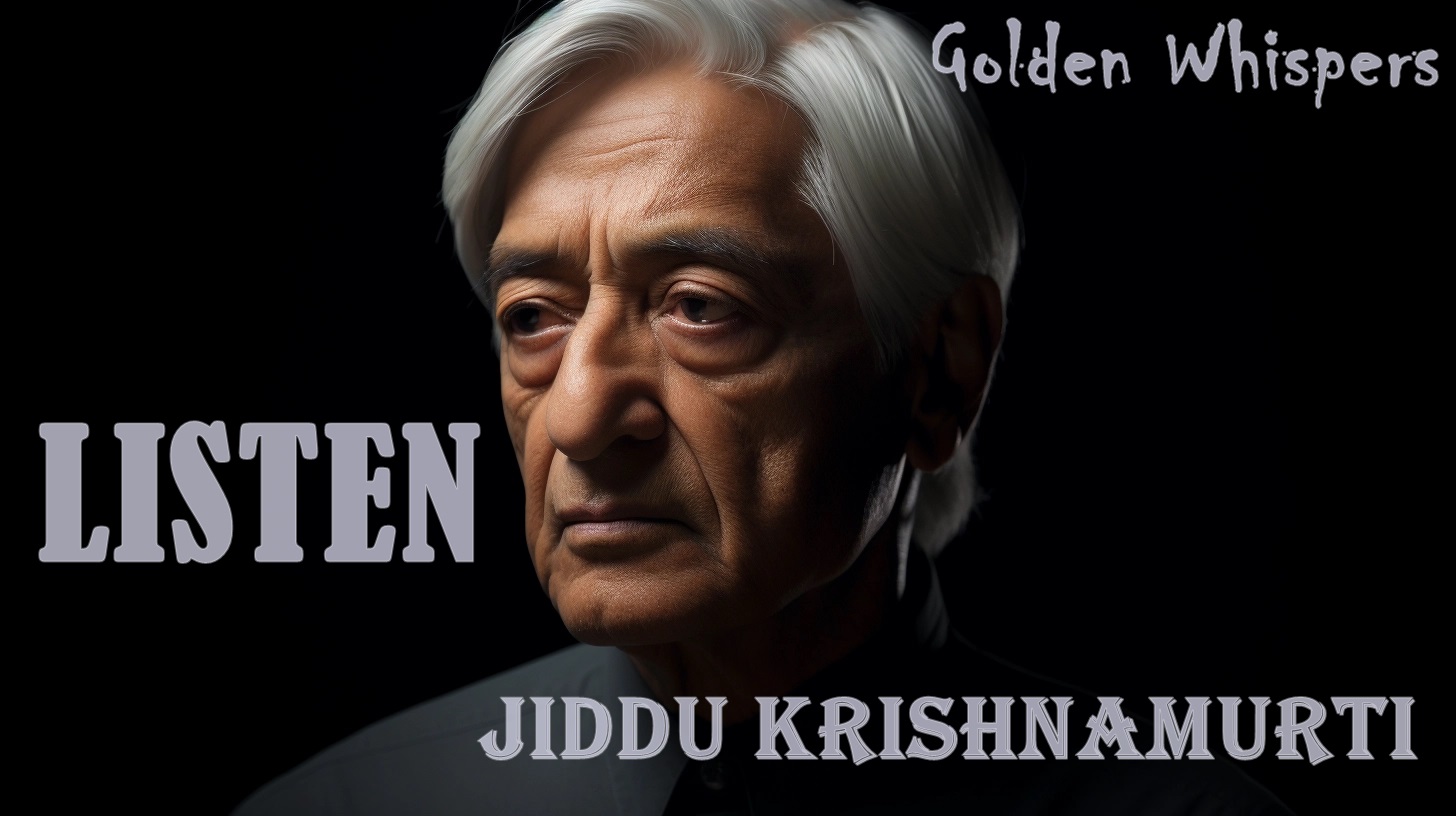Listening well is an undervalued skill with immense potential for growth and insight. No matter how deeply we listen, though, it is always with some sort of bias or preconceived notion. Our opinions, conclusions, and biases always act as a filter between the speaker and ourselves, so we never truly listen to what is being said… There needs to be peace within to listen, a release from the stress of accumulation allowing for undistracted focus. By remaining aware and at the same time passive, you can hear what is beyond the conclusion of words. But to connect beyond the clamor of words, there must be an aware passivity in listening. Words confuse; they are simply the external means of communication. Those who care enough to listen might do so, but such people are extremely unusual. Most people today are too preoccupied with getting what they want to stop and listen to others. The music of the words may only be heard via attentive attention. Hearing Without Processing I have no idea if you have ever taken the time to hear a bird sing. It takes mental silence—not a spiritual silence, but mental silence nonetheless—to listen to something. I want you to listen to me, so please don’t have a million thoughts racing through your head.
When you look at a flower, you just look at it; you don’t stop looking because you give it a name, put it in a category, or declare it to be a certain species. To listen to the communist, the socialist, the congressman, the capitalist, to listen to your wife, your children, your neighbor, the bus conductor, the bird—to listen to anyone is, in my opinion, one of the most difficult things to do. You don’t need to argue about whether or not what he’s saying is accurate since direct contact is established only when you listen without the notion, without cognition. Liberation through Listening When you try to listen, do you actually pay attention? Isn’t that trying to listen to a distraction in and of itself? When you listen to music that makes you happy, do you put forth any extra effort? … As long as your thoughts are focused on trying to achieve something, comparing something to something else, justifying something, or condemning something, you are blind to the truth and cannot recognize the false for what it is.
The very act of listening grants its practitioner independence. But are you truly interested in hearing me out, or in settling the tumult within you? Perhaps you could put an end to your internal strife and inconsistencies if you listened to yourself without trying to force your thoughts into a predetermined framework. The mind is never at rest to hear the roar of its own efforts and pains because we are always attempting to be this or that, to attain a certain state, to catch one form of sensation and avoid another. Take it easy… and don’t try to mold yourself into anything or bottle up an emotion. Passive Listening You’re listening to me right now, and you’re not straining to focus, you’re just listening; and if what you’re hearing is true, you’ll discover a remarkable change taking place within you—a change that wasn’t planned or desired, a transformation, a complete revolution in which the truth alone is master and not the creations of your mind.
That’s the way you should listen to everything, not just what I’m saying, but what other people are saying, the birds, the whistle of a train, the rumble of a bus passing by, etc. If you take the time to listen to everything, you’ll notice that the silence grows and is unbroken by outside sounds. Only when you are fighting against something when you are closing yourself off from what you do not want to hear, is there any kind of conflict. Paying Attention to Oneself QUESTIONER: I feel like I’m getting it when I’m sitting here listening to you, but when I leave here and try to apply what you’ve been saying, I’m completely blank. You are not paying attention to the other person but rather to yourself. If you pay attention to the speaker, he will become your guide and source of knowledge, which is a terrible thing since it establishes a chain of command. You are, in effect, engaging in the practice of self-listening.
What you see is not the speaker’s vision for the world, but rather your own. Once you’ve established that you are, in fact, looking at yourself, you may say, “Well, I see myself as I am, and I don’t want to do anything about it” and be done with it. The difference between applying what the speaker is saying and saying something like, “I see myself as I am, and there must be a change,” is night and day. But if, as the speaker is speaking, you are listening to yourself, clarity and sensitivity emerge; the mind becomes healthy and powerful. Neither giving in nor fighting back, it comes to life and becomes intense; only such a person can bring forth a new generation and a new planet.

